If you are decided to read «The Right Stuff» by Tom Wolfe from the publisher«Bearded Tamarin», then not we should expect another chronicle of the space program. It is closer to «Riding on shuttles» than before «Apollo 8». There is no will be stories about heroes who rise in the the sky with fanfare and applause. Instead, the reader is thrown into the thick of nerves, testosterone, competition and of mockery. Here, space is not a metaphor for human progress in the future, and another step in the in the career race of men who lack fear but do not pride, and more of a very inflated ego. This is the book is not about space missions, and about people. And above all —about the same«normal guys». Tom Wolfe defines them as those who possess a mystical blend of chutzpah, coolness, reflexes, and bravado that separates«a normal kid»from just being a good pilot.
«The Right Stuff»
Author Tom Wolfe
Translator Yaroslava Panko
Publisher «Bearded Tamarin»
Language Ukrainian
Number of pages 408
Cover Solid
Year of publication 2025
Size 135×210 mm
Website tamarinbooks.com
«The Right Stuff» not is simply a book about the first American astronauts: John Glenn, Gus Grissom, Scott Carpenter, Gordon Cooper, Dick Slayton, Alan Shepard, Wally Shirra. These are a large-scale literary immersion in masculine culture of risk, in the psychology of competition, in media era of creating icons for every American citizen. Wolfe did not writes about rockets —He writes about those who are in They would sit down. And that is why this The book is alive, full of fear, bravado, suspicion, pain, glory, and disregard for death.
The same ones«normal guys»stand out among other pilots. They don’t talk about broken ribs when they have a record to break tomorrow. They are a full-fledged community among pilots, where your coldness and your coldness —not just a character trait, but unified social capital and a card that can be played.
1950-60-years, when the United States was forced to catch up with the USSR on led by Ukrainian Korolev in space race after the launch«Sputnik», а and then the first human flight in space. The American government needed to create new national heroes. But instead of congressmen or soldiers were turned into project pilots «Mercury». In fact, it is There will be pilots sitting in the an airtight jar and not will be managed. All that they can do is silently accept the risk and die with dignity on in the eyes of the world. Because American missiles often explode.
And this paradoxical situation, when the best pilots in the US history is planted in the machines that they are not can manage becomes one of the book’s main dramas. They had to take risks, but not to pilot. They were supposed to be icons, but without any real direct impact on this a fucking tin can. They had to turn themselves into symbols, but keep that bravado inside«normal guys».
В In one of the scenes, the pilots learn that first in monkeys will fly into space. This is humiliating and annoys«normal guys». They’re not want to be«passengers»as They are called test pilots amongst themselves. They want to be the ones who pull the machine out of the dive. А not Those who are simply lifted by the rocket into the space.
Seven astronauts of the space program «Mercury»The newly established media outlets are gradually beginning to use their newfound media popularity to push NASA control over the vehicle, and more respect and the role of pilots. У In these moments, Wolfe demonstrates a brilliant sensitivity to internal conflicts. He sees how Some team members are willing to everything to be the first to make it, and Others are trying to keep themselves under control in front of the cameras to preserve family, honor, and silence. Even if chaos is raging inside them.
A separate topic«Normal guys» —creation of heroes for through the media. How The media has consistently and aggressively turn real, imperfect, often contradictory men into perfect images for the covers. Tom Wolfe shows how NASA has used astronaut families as They were taught to answer correctly to the question of how. The wives were forced to pretend to have a perfect life and to behave with dignity in front of the cameras. And how At the same time, the astronauts themselves were quite active in enjoying the fame: they walked on the parties, lined up in The best hotels, received gifts, discounts on cars and were very popular in the girls, which is often not were hesitant to use it.
The most acute and The author showed most dramatically«smearing»astronauts’ personalities under the pressure of fame. Some of the characters refuse reflection and self-criticism. Others, such as John Glenn, are trying to maintain the moral high ground, even at the cost of conflicts with colleagues. Still others begin to consider themselves better than comrades and mock They were on a flight to space. All this adds moral depth to the text: it is not just a book about men in spacesuits. This is a book about different types of male and human vulnerability —from fear of dying to fear of losing public face and respect among«normal guys».
Many Western reviewers and readers do not like the story of Gus Grissom’s flight here. У In his book, Wolfe hints that he was very nervous, and more could have panicked after the flooding, he blew up the capsule hatch himself, which led to its loss, and more almost drowned. I am not it seems that the author somehow showed it strongly with of the negative side. Rather, he described how guilty the astronaut himself felt, as I was tormented, nervous and considered himself no longer worthwhile«normal guys»after the flight.
Some Western readers and observers say that there is no evidence of Gus Grissom’s mistakes, although some other astronauts have of technology in the his books and memoirs indicate the opposite. В anycase it is more perception of the American reader because For them, Gus Grissom is a hero. When a book«Normal guys»was released in 1979, so it is almost half a century old, and reads and Still unbelievable, Grissom was already long dead. So he wasn’t able to say anything about his flight, which was described by Tom Wolfe. About the tragic death of Gus Grissom during the tests«Apollo 1»у 1967 can be read more in book «Riding on shuttles» another astronaut, Mike Mullane. It is also released in us«Bearded Tamarin».
I would like to emphasize the style and skill in Tom Wolfe’s prose writing. On In the West, it is is a renowned documentary filmmaker and of the new school of journalism in late XX century. On His account is well known in the US dollars of books, and one of the The most significant ones are considered to be«Normal guys».
The author does not seem to be writing a text, he feels it. Tom Wolfe does not says that is happening, he lets the reader hear and to feel. His book is more novelized than documentary. In each chapter, the author mixes his thoughts and the astronauts’ memories, fears, etc., then jumps to general scenes and explanation of certain and other events, then makes a few jokes, brightly and describes in detail the next dinner party of astronauts. Then he rushes back into the space or in the cockpit. And all this so exciting that locks the spirit and does not It lets you go. I want to read the book until end and right away. I don’t remember anything like it of fiction books that would be as exciting to read as they are this one. This is really very cool.
Such a skill of the author immerses the reader in book with head and mentally exhausting. Tom Wolfe is so skillful at telling about other people’s experiences that they are passed on to the reader. Therefore, weigh up when you take on book. This is not an easy walk, but it will definitely be remembered for a long time.
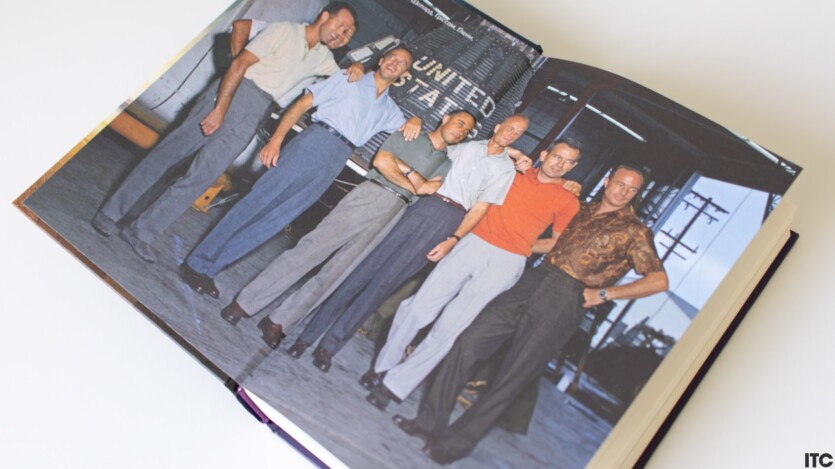
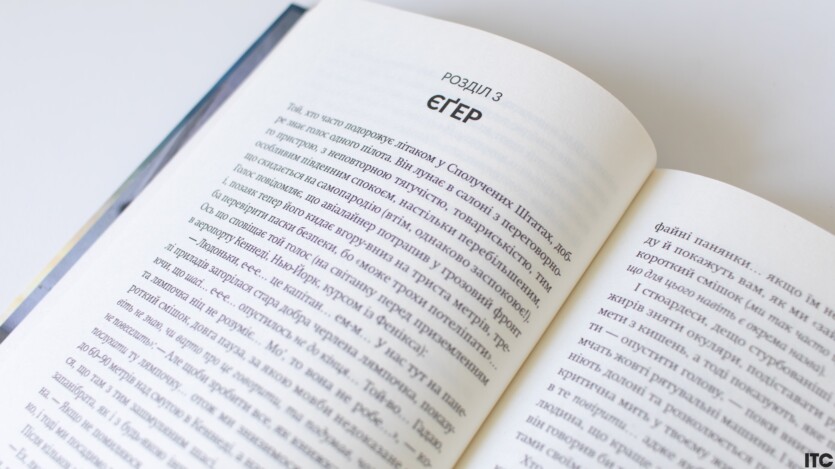
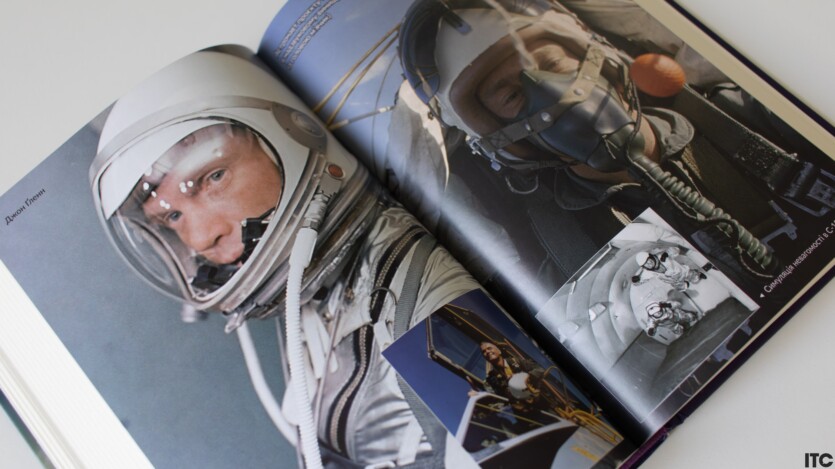
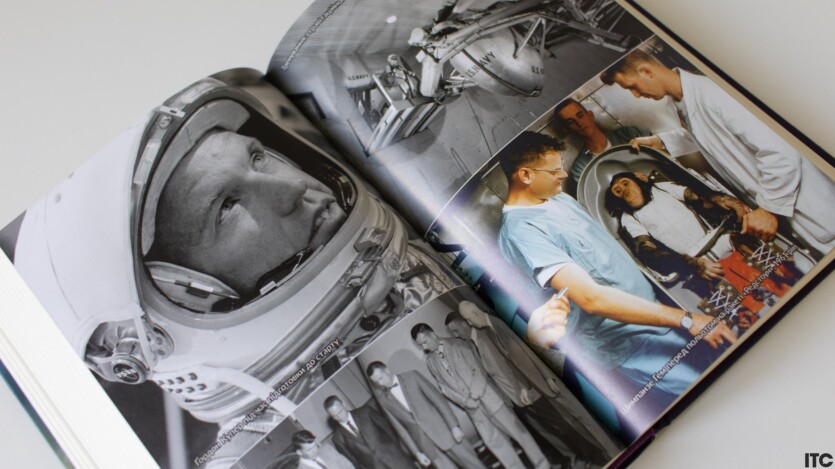
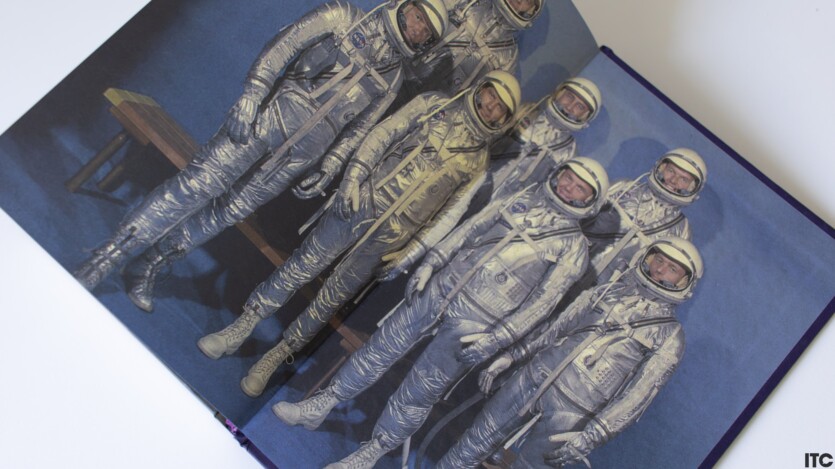
It is same edition«Normal guys»from the publisher«Bearded Tamarin»made with high quality and stylishly. The cover is bright and immediately attracts attention, the paper is yellow and quality, the font is easy to read. В In the middle of the book are many color photographs of astronauts on glossy paper. Lyase does not/ They brought it in.

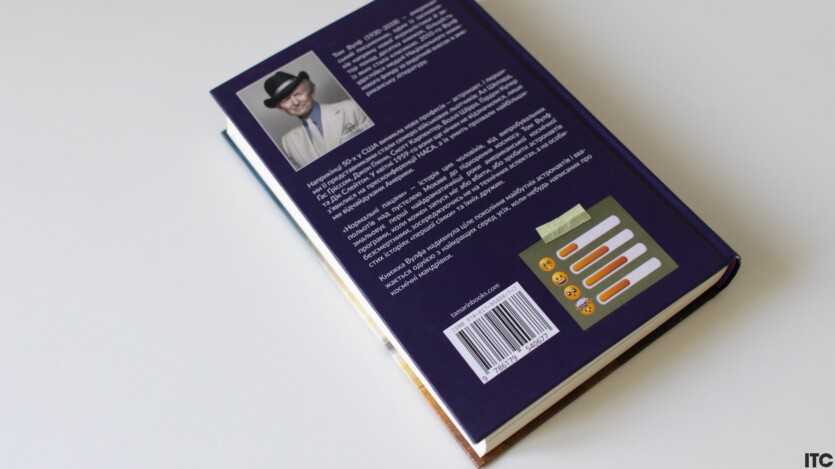
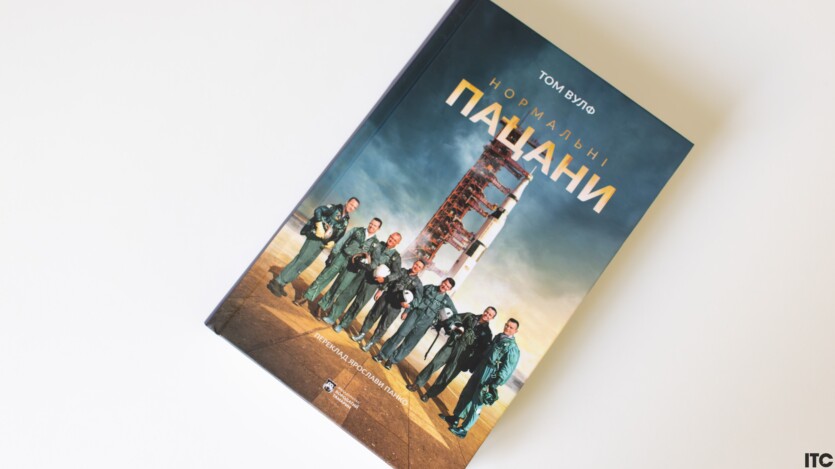

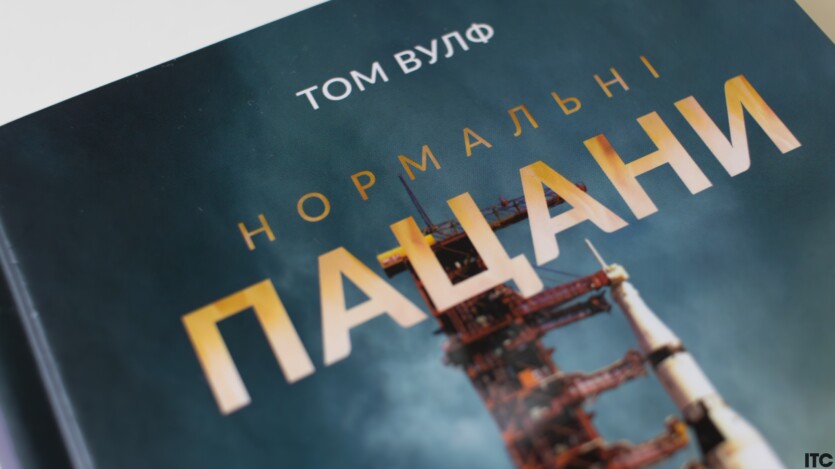
Spelling error report
The following text will be sent to our editors: